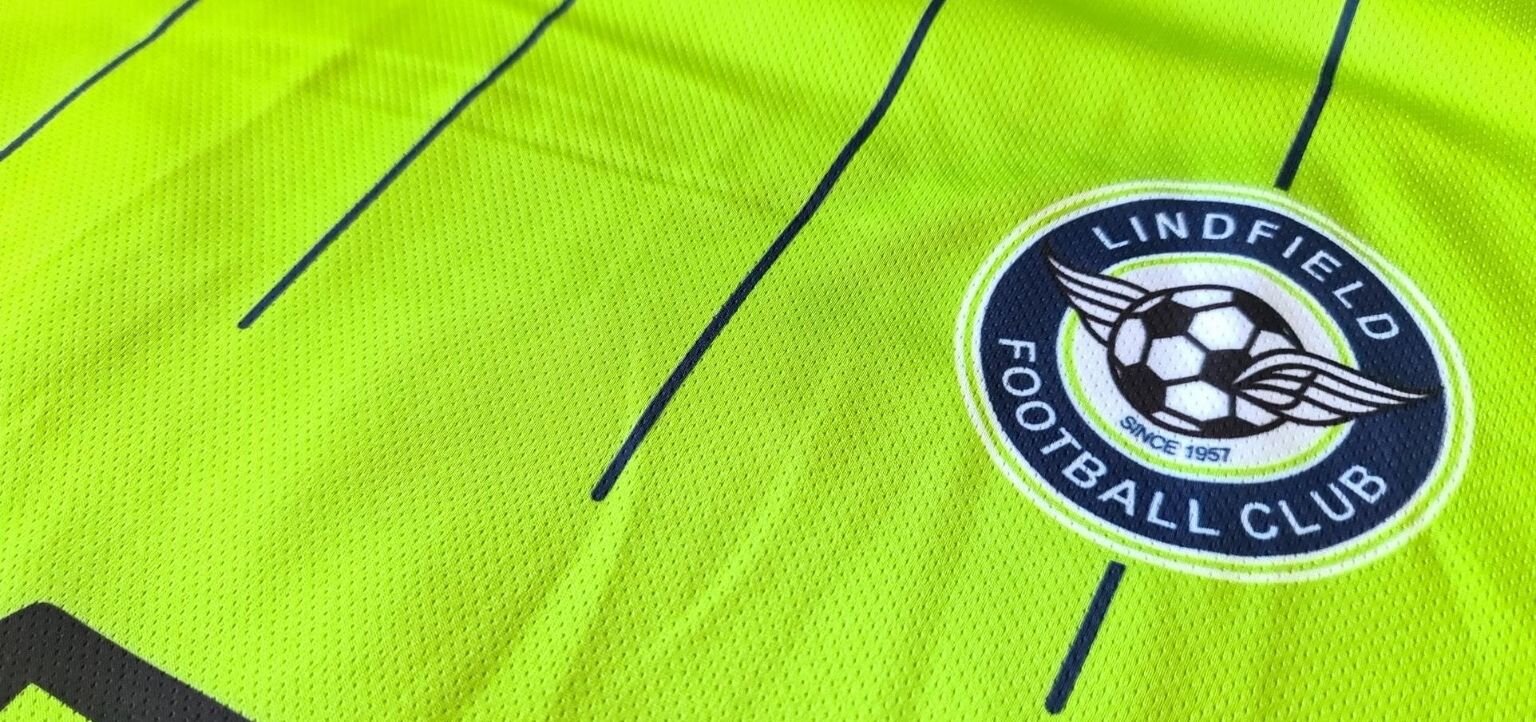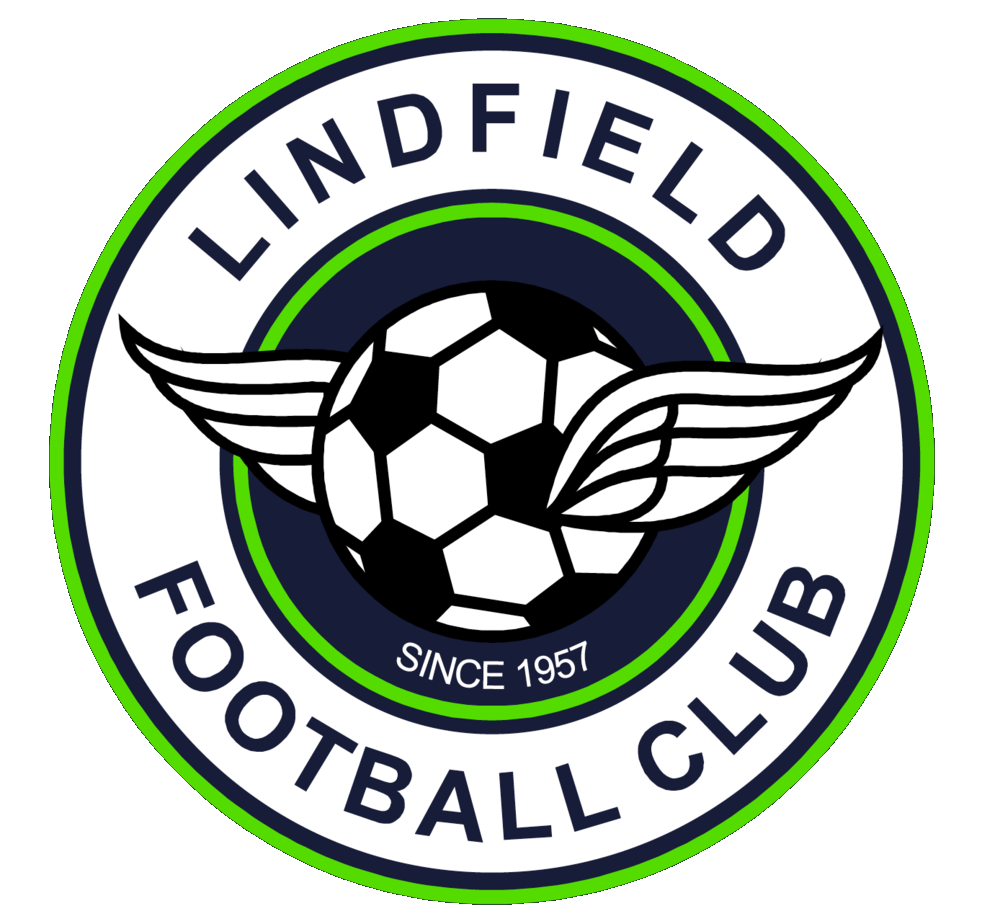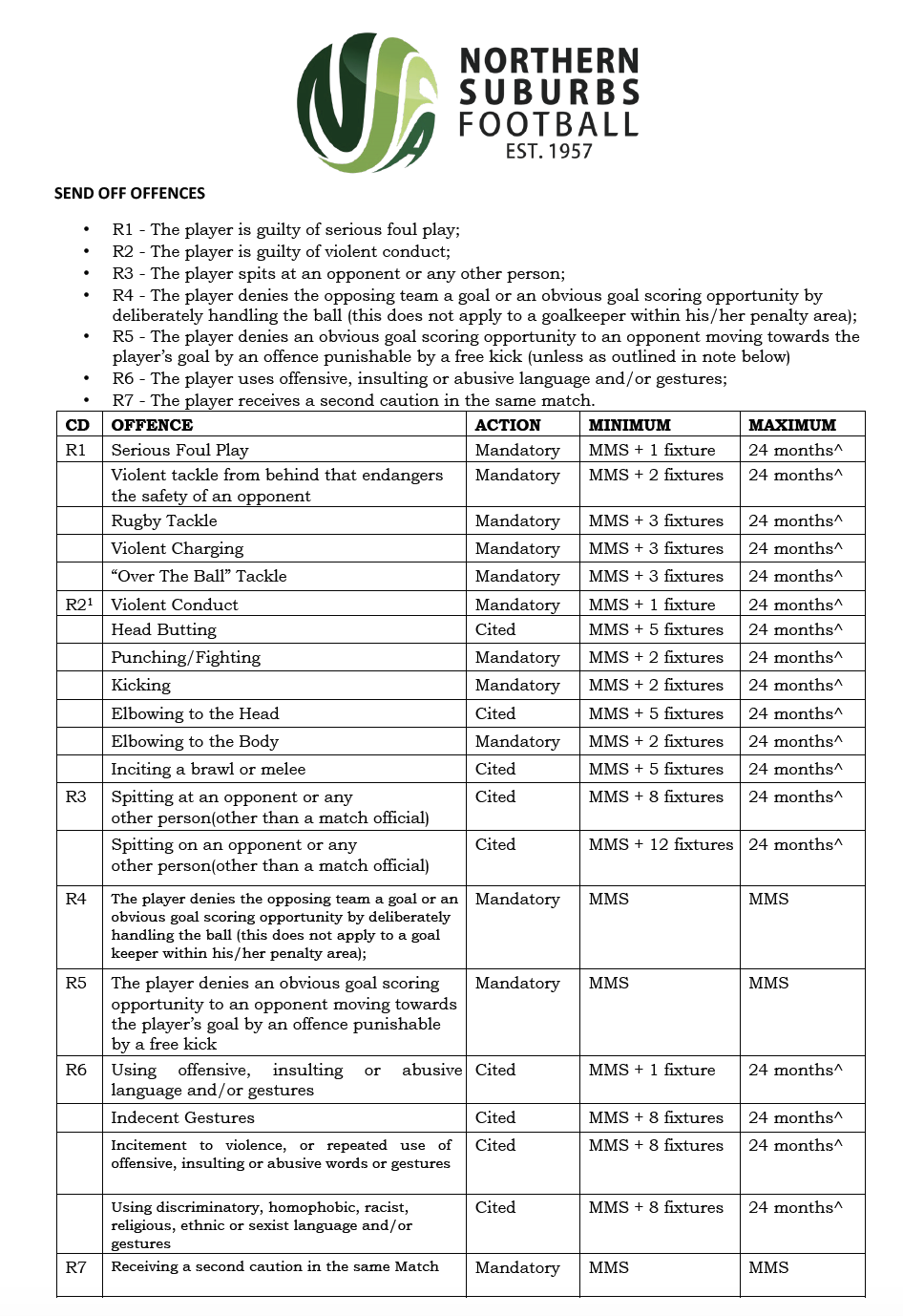
Discipline and Appeals
The Protests, Disputes & Disciplinary Committee (PD & DC) advise that it is the player's responsibility to be aware of the process regarding appearance at weekly PD & DC hearings should they be sent from the field of play at the weekend.
See below what action you need to undertake as it varies depending on the charge. For some charges you are required to attend the weekly PD & DC hearing and for others, attendance is not required.
When: Wednesday evenings from 6:30 pm. Players may sign in from 6.15 pm.
Where: The NSFA office, Suite 2, 4-10 Bridge Street, Pymble.
When attending the tribunal, for the best outcome:
Be on time. Note: if it is a busy night, it is on a first-come, first-served basis and you can be there for an extended time depending on how many others are in front of you.
Be respectful at all times and show appropriate remorse for your actions and note any actions to make amends.
You will be given an opportunity to have your say however please do this constructively. Avoid criticism of officials, stick to the facts
You may bring witnesses or even witness statements (including from opposition if appropriate) to offer to the panel on the night. It is best to submit these in advance to NSFA via info@lindfieldfc.com.au. The same principle applies, only submit constructive opinions – the basic rule is that if you can’t be constructive or stick to the facts, don’t say anything.
WHAT SHOULD I DO IF I AM SENT OFF?
If you are sent from the field during or immediately after the conclusion of the match ( Red Carded) your team manager should approach the referee after the match and ask the referee what you are being charged with.
The referee should give you a code number from R1 to R7 (see list below)
Do not ask the referee what you are required to do next. The referee is not QUALIFIED to advise you on what your next course of action is.
Following is a summary of your next step depending which code your offence is:
If you are sent from the field for R4, R5 or R7, you are automatically suspended for one (1) match. There is no appeal against a suspension for these offences unless you can prove mistaken identity.
If you are sent from the field for R1 or R2, you will be automatically suspended for 2 to 4 matches depending on the severity of the offence. However, you can elect to challenge the automatic suspension by attending the next P. & D. hearing. You will not receive a citing notice at this point.
If you do not attend the next P & D hearing the committee will either:
a) Apply the mandatory suspension as per the regulations. There is no appeal in this case,or
b) Cite you to appear at the following P & D hearing if they determine that the offence is of a more serious nature. At this point, you will receive a citing notice.If you are sent off for R3 or R6 you must attend the next P. & D. meeting. You will not receive a citing notice before the meeting. If you fail to attend you will be cited to appear at the next P. & D meeting and you must stand down from all matches played before you appear.
Please note:
Every player sent from the field must miss any match played before the next P. & D. hearing.
If a player is sent off for R4, R5 or R7 in a tournament match (e.g. NSFA Cup; President’s Shield) the suspension must be served in the next match in that tournament, provided your team is still in the tournament. If your team was knocked out of the tournament, the suspension must be served in your next competition match.
The full procedure can be found in Section 4.6 of NSFA Regulation 4 – Protests, Disputes and Disciplinary & Appeals
It is your responsibility to comply with the regulations when sent from the field. This includes asking your club secretary for advice, he or she can then contact the NSFA office if they cannot answer your question.
SEND OFF OFFENCES
A referee may send a player from the field as prescribed in the FIFA Laws of the Game - Law 12 if guilty of any of the following offences:
R1: The player is guilty of serious foul play;
R2: The player is guilty of violent conduct;
R3: The player spits at an opponent or any other person;
R4: The player denies the opposing team a goal or an obvious goal scoring opportunity by deliberately handling the ball (this does not apply to a goal keeperwithin his/her penalty area);
R5: The player denies an obvious goal scoring opportunity to an opponent moving towards the player’s goal by an offence punishable by a free kick (unless as outlined in note below)
R6: The player uses offensive, insulting or abusive language and/or gestures;
R7: The player receives a second caution in the same match.
See below for the full list of Offences and Minimum and Maximum Suspensions.
CAUTION OFFENCES - Yellow Cards
A referee may caution players as prescribed in the FIFA Laws of the Game if a player is guilty of any of the following offences:
Y1: Unsporting behaviour.
Y2: Dissent by word or action.
Y3: Persistent offences.
Y4: Delaying the restart of play.
Y5: Failing to respect the required distance when play is restarted with a corner kick, free kick or throw-in.
Y6: Entering, re-entering or deliberately leaving the field of play without the referee’s permission.

